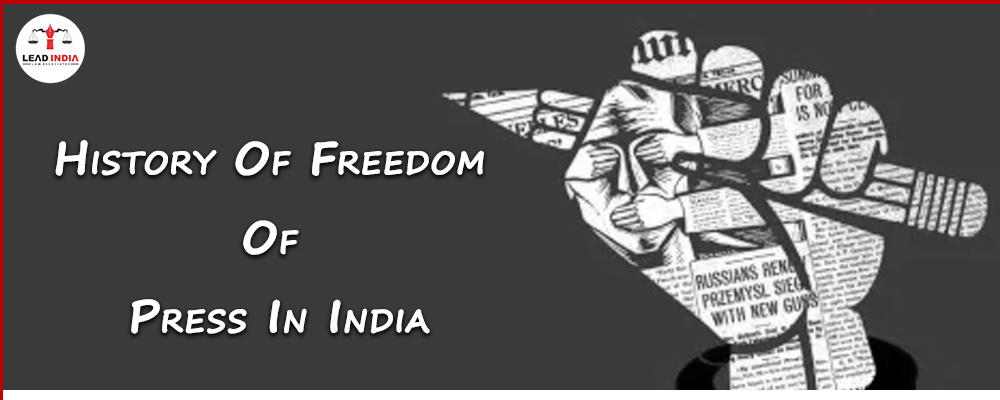History of Freedom of Press in India
At first, Sweden put forward the Freedom Of Act, 1766 in their constitution on 2nd December 1766. Sweden became the first country to enact Freedom of the press in its constitution.
After this, other countries understood the requirement to introduce freedom of the press in the constitution. In US Constitution, there is a requirement for supporting the freedom of the press & it was approved on 15 December 1791. It was one of the 10 judgments in the Bill of Rights.
In India, the originators of the constitution didn’t perceive the obligation to present an explicit prerequisite for Freedom of press or freedom of media.
The speeches of Dr. B.R Ambedkar from Constituent Assembly discussions revealed that there is no obligation of any separate law declaring the independence of the press:
Need A Legal Advice
The internet is not a lawyer and neither are you. Talk to a real lawyer about your legal issue

“The press has no individual advantages which are not to be presented or which are not to be employed by the citizen in his function. The director of a press or the administrator is all residents and therefore when they want to write in newspapers, they are simply practicing their right to appear, and in my experience, consequently, no special notice is important of the independence of the press at all.”
In 1954, a Press Commission was elected, which enquires into all objects compared with the performance of Press and all features of journalism.
Liberty of the press in India draws its legitimacy from:
- Preamble
- Article 19 (1)(a) of the constitution
Preamble
These words of the Preamble indicate that the Indian constitution implicitly includes freedom of the press- Secure to all its citizens the liberty of thought, expression, belief, faith, and worship
Liberty of press happens within the scope of Liberty of thought and emotion. Therefore, the Preamble implies the necessity of liberty of the press which is further identified as a human right and as a fundamental right in the Indian constitution under 19(1) (a).
Article 19 (1)(a) of the constitution
Article 19 (1) (a): Every citizen has the freedom of speech and expression.
Liberty of the press comes in the extent of independence. Hence, freedom of the press is an intended or understood fundamental right. Article 19 (1) (a) is involved in the Indian constitution, by the same token, as
Article 19 of the Universal Declaration of Human Rights, 1948 states that –
“ Everyone has the right to freedom of opinion and expression; this freedom involves freedom to hold beliefs without restraint and to seek, receive and impart knowledge and ideas through any means and although of frontiers.”
Article 19 (1) (a) has four parts explained in it:
- Freedom of speech
- Freedom of expression
- Freedom of press
- Right to information





 Talk to a Lawyer
Talk to a Lawyer